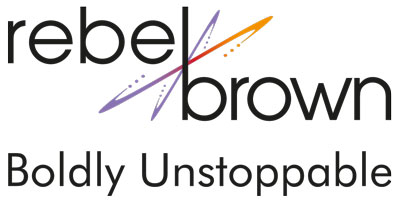We are all wired to take things personally. A lot of us also want to stop taking things personally.
Many of us experience this wiring all the time.
- Your boss is discussing a problem in your team, when your internal voice asks, “Is he talking about me? What did I do?”
- You overhear a nasty conversation in the office and wonder if the person they’re speaking about is you?
- You get teased and teased over something that happened long ago. At some point in time, you have had enough and you react. It’s gotten personal… too personal.
We’ve all been there…..in business and at home.
Welcome to the oh so personal nature of our unconscious mind. To our unconscious, everything is about us.
- That’s partially because of our instincts to constantly watch for a threat – which translate to everything around us potentially being a threat to us.
- It’s partially simply the way we are wired. Why wouldn’t we be? Our mind design is unique, created specifically for us. Of course we focus everything on us.
That drive for personalization explains a lot about human behavior, responses and communications, now doesn’t it?
What If It’s Not About You?
Our brain immediately assumes that everything is about us. From the warning note on the bulletin board to the email from the team leader that restates a rule to the way someone grumps off when we say good morning. We must have done something!
Yet the reality is that most of this world is not about me, or you. Once we understand the way our mind is programmed, we have the power to shift into a new perspective about everything around us.
How to Stop Taking Things Personally
We interrupt the thought patterns that tell us it’s about us! Here are 3 steps to shift your personal response.
Stop. Pay attention to your thoughts, especially the unconscious knee jerk reaction to believe it’s all about you. When you catch yourself beginning that thought process, stop. When we stop we can bring that unconscious response into our conscious minds for a reality check.
Question. Questions activate our conscious minds to look for different alternatives and new options. Once we stop the unconscious response, we can step into a new pattern of thinking. Ask yourself, “Is this really about me? What is the other person really talking about? What is their true focus?” Take a step back and consciously examine the meaning and context of the communication.
Ask. If you still aren’t clear about what’s true about whatever triggered the “personal” response, how about asking the person or people involved? What a concept! We all tend to shy away from the straightline path of simply asking a question of another. “ Hey Boss, did I do something to trigger the rule discussion? If so, how can I improve? ” “Hey John. Was I involved in the discussion you and Linda had this morning? If so, I’d like to make it right.” How simple is that?
These three steps create a pattern interrupt that, with enough time and attention, shift our personalization response to make us more objective. Try them for a month and see what happens.
The Bottom Line
So why don’t we just naturally stop taking things personally to question ourselves and perhaps ask others? It seems more logical than our unconscious response to fret and grump about things while staying silent.
I have a theory about that. No science, no proof, but my theory. Here it is.
- We’re programmed in our society that failure is a bad, bad thing. We’ll do almost anything to avoid it. When we hear or experience something that we take personally, it’s usually about something negative. That’s our instinct that seeks out all of the problems in action.
- That negative can and often does feel like a failure, or the potential for failure. So instead of bringing that personal assumption into the open, questioning and even asking, we bury it.
- Better to worry in our own minds, fret and buzz, perhaps blame others, than to know the truth – and be sure of our failure.
That’s just my theory… but try it on and see how it works for you. For me, once I began to stop, question and ask…I discovered that most of what I thought was about me wasn’t, at all. As for the worrying and grumbling and just plain grousing well, that stopped too.







6 Comments
Dan Forbes
June 27, 2013 - 7:42 amStop, Question, and Ask. Powerful tips for better communication. This is Gold. Thanks, Rebel.
rebel brown
June 29, 2013 - 9:38 amCan it be that simple? Yep!
Hope the offline world is treating you magically Dan. I miss you already!
Kenna Griffin
June 27, 2013 - 10:04 amI read that “people think about you much less frequently than you think they do.” This really stuck with me. It’s honestly a bit arrogant to assume things are about you. We need to focus on processing information analytically instead of emotionally. I think women are a bit more prone to emotional processing than men, too.
rebel brown
June 29, 2013 - 9:40 amHI Kenna
I was just having this conversation with someone yesterday. So many of us think others are reflecting on our behaviors, beliefs, image and more. IN reality, we’re thinking about ourselves – and all based on our own version of reality. The thing is – it’s not just about our being able to consciously focus on the analytics. Our unconscious mindware is programmed to have us take things personally. So we have to literally take the steps to change that mindware – just as we’d change a habit. That’s why I pubbed my ebook about Changing Habits (look under Rebel’s Books and More at the bottom of this page) – to help us all make the changes we want to make in our programs!
THANKS for stoping by!
Michelle Spear
June 27, 2013 - 2:57 pmHey Rebel –
There’s a wonderful quote by author Byron Katie which says: “God spare me from the desire for love, approval , and appreciation.”
Too often we are just needy, wanting humans…it’s how we’re wired. However, if we can step away from the needing, it’s amazing what we can accomplish. Repeating that “prayer” on a daily basis really magnifies when we feel the desire for love, approval or appreciation. It may take a while, but you will stop yourself and bring your emotions back. You’ll recognize the need, sit and say “huh”, then stop and change the situation or environment.
If you want more on this, I’d love to share!
Michelle Spear
rebel brown
June 29, 2013 - 9:43 amHI Michelle
For some of us the change comes through prayers or mantras. Others call it attention density or focus. Still others call it mind over matter. Whatever flavor you subscribe to – the key to changing our perceptions is to change the habit – aka our mindware programs. We make that upgrade through repetitive reprogramming thanks to the power of our focus on what we want. We can change anything we want to change with the power of upgrading our mindware. How cool is that!
Thanks for stopping by and sharing!
reb